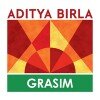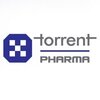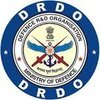Scientist
Scientist Interview Questions and Answers for Freshers

Asked in Indian Space Research Organisation

Q. What is the minimum temperature of any substance that we could reach and use it for practical purposes?
The minimum temperature of any substance that we could reach and use for practical purposes is absolute zero, which is -273.15 degrees Celsius or 0 Kelvin.
The minimum temperature is known as absolute zero.
It is the lowest possible temperature that can be reached.
At absolute zero, all molecular motion ceases.
Practical applications include cryogenics and superconductivity.
Examples of practical uses are in medical imaging, particle accelerators, and space exploration.

Asked in Indian Space Research Organisation

Q. What would you like to do? ( Design of rockets or design of electronic components with heat transfer applications) Then
I would like to design electronic components with heat transfer applications.
I have a strong interest in electronics and how heat can be managed in electronic systems.
I enjoy working on projects that involve designing and optimizing electronic components for efficient heat dissipation.
I have experience in conducting thermal analysis and simulations to ensure proper heat transfer in electronic devices.
I find it fascinating to explore innovative ways to improve heat dissipation...read more

Asked in Indian Space Research Organisation

Q. Humidity ratio- how is it measured? ( Two types) What does 1 ton refrigerator mean? Parts of refrigeration cycle? Which is the smallest component?
Humidity ratio is measured using two types of instruments: psychrometers and hygrometers.
Psychrometers measure humidity ratio by comparing the readings of two thermometers: a dry-bulb and a wet-bulb thermometer.
Hygrometers measure humidity ratio using various principles such as electrical resistance, capacitance, or condensation.
A 1 ton refrigerator refers to the cooling capacity of the refrigerator, which is equivalent to removing 12,000 British Thermal Units (BTUs) of heat ...read more

Asked in Indian Space Research Organisation

Q. IC engines- Spark plug, how combustion takes place, what is dtsi, why is it used, Types of engines- 2 stroke vs 4 stroke
Spark plug ignites fuel-air mixture in IC engines. DTSI improves combustion efficiency. 2-stroke and 4-stroke engines differ in number of strokes per cycle.
Spark plug ignites the fuel-air mixture in the combustion chamber
DTSI (Digital Twin Spark Ignition) is a technology used to improve combustion efficiency by using two spark plugs
2-stroke engines complete one power stroke in two strokes of the piston, while 4-stroke engines complete one power stroke in four strokes of the p...read more

Asked in Indian Space Research Organisation

Q. How many laws of thermodynamics? Applications of each of them. What is dB Amp
There are three laws of thermodynamics. Each law has specific applications. dB Amp is not related to thermodynamics.
The first law of thermodynamics, also known as the law of energy conservation, states that energy cannot be created or destroyed, only transferred or transformed.
The second law of thermodynamics states that the entropy of an isolated system always increases over time.
The third law of thermodynamics states that as the temperature approaches absolute zero, the ent...read more

Asked in Indian Space Research Organisation

Q. What material will you choose Al or Mg for designing and why? What is concurrent engineering?
The choice between Al and Mg for designing depends on the specific requirements and constraints of the project.
Aluminum (Al) is lightweight, corrosion-resistant, and has good thermal conductivity, making it suitable for applications where weight reduction is important, such as aerospace.
Magnesium (Mg) is even lighter than aluminum, but it has lower strength and is more prone to corrosion. It is commonly used in automotive components to reduce weight and improve fuel efficienc...read more
Scientist Jobs




Asked in Indian Space Research Organisation

Q. What is the difference between a rocket and a missile?
A rocket is a vehicle that propels itself through the atmosphere or space, while a missile is a weapon that is guided towards a target.
Rockets are used for space exploration, satellite launches, and transportation, while missiles are used for military purposes.
Rockets are typically unmanned and used for peaceful purposes, while missiles are often armed and used for warfare.
Rockets are designed to carry payloads such as satellites or scientific instruments, while missiles are ...read more

Asked in Grasim Industries

Q. Technical development of forest trees
Technical development of forest trees involves genetic engineering, biotechnology, and precision breeding.
Genetic engineering is used to modify the DNA of trees to enhance their growth and resistance to pests and diseases.
Biotechnology is used to develop new varieties of trees that are more productive and adaptable to changing environmental conditions.
Precision breeding involves selecting and breeding trees with desirable traits to create new varieties with improved character...read more
Share interview questions and help millions of jobseekers 🌟

Interview Questions of Similar Designations
Interview Experiences of Popular Companies






Calculate your in-hand salary
Confused about how your in-hand salary is calculated? Enter your annual salary (CTC) and get your in-hand salary


Reviews
Interviews
Salaries
Users










